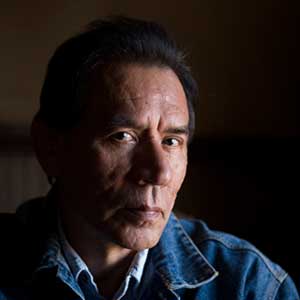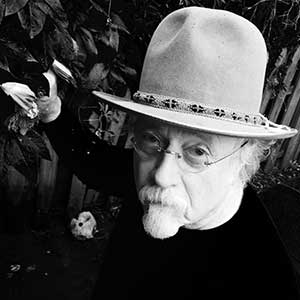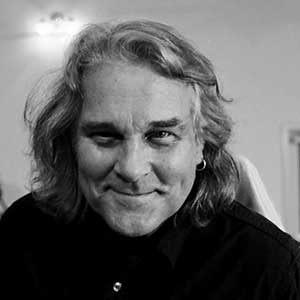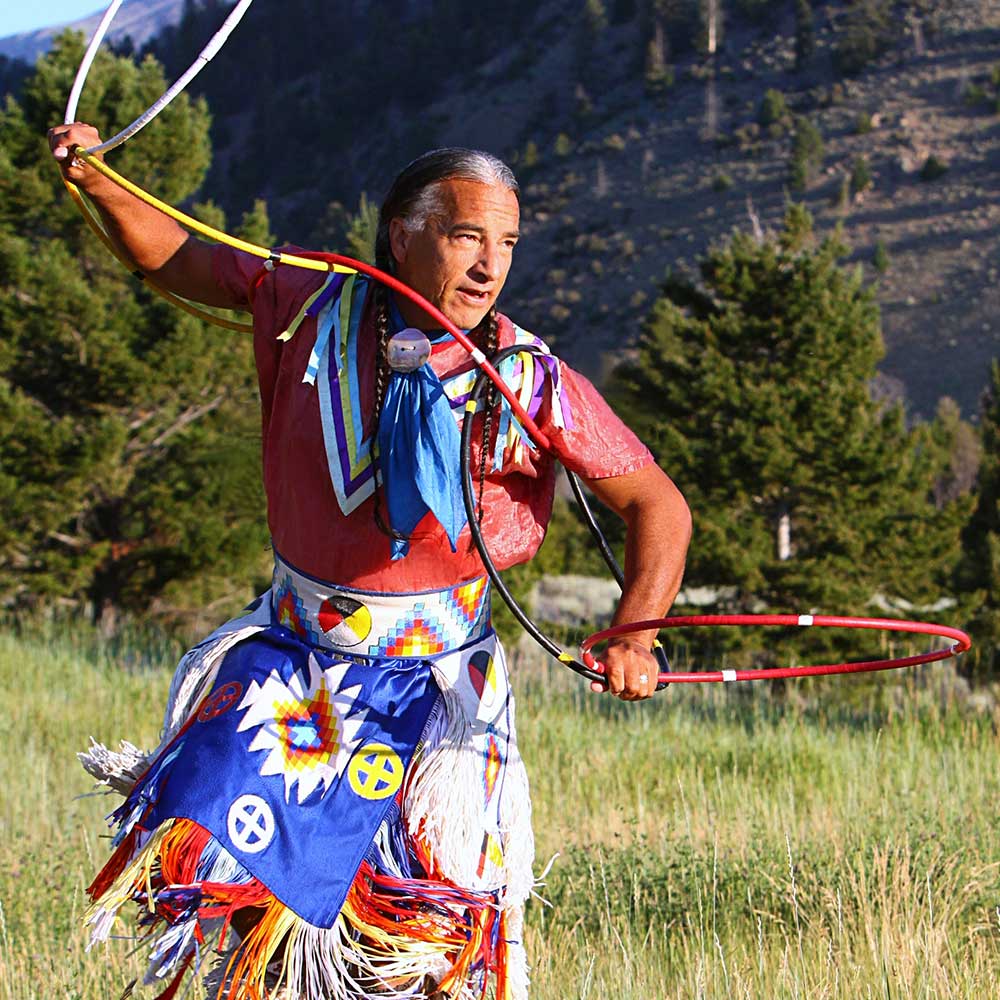Meet the Team
Artists, Activists, Professors, Musicians, and Publishers
Philip Deloria
Historian
Philip J. Deloria is Professor of History at Harvard University, where his research and teaching focus on the social, cultural and political histories of the relations among American Indian peoples and the United States, as well as the comparative and...
Wes Studi
Reader / Actor
From small-town Oklahoma native to internationally acclaimed actor and musician, Wes Studi credits his passion and multi-faceted background for his powerful character portrayals that forever changed a Hollywood stereotype...
Bobby Bridger
Producer
During his fifty-year career Bridger has performed all over America and Europe as well as landmark tours of the former Soviet Union, and Australia. Bridger started performing regularly in public upon entering college in 1963...
John Inmon
Sound Engineer & Editor
As a founding member of the legendary Lost Gonzo Band his peers know John as one of the finest guitarists in Austin, Texas. Considering the extraordinary number of guitar wizards Texas has produced, this is high praise indeed...
Kevin Locke
Transitional Musical Underscoring
He is a preeminent player of the Native American flute, a traditional storyteller, cultural ambassador, recording artist, fluent Lakota language and sign language speaker, and educator...
Producer's Notes
By Bobby Bridger
The World We Used to Live In: Remembering the Powers of the Medicine Men was the last book Vine Deloria, Jr. wrote; he delivered the manuscript and died two weeks later. In early 2018, when Vine’s widow,Barbara, and his editor and publisher, Sam Scinta, at Fulcrum Publishing gave me their blessing to move forward with production of audiobooks of several of Vine’s books, I knew The World We Used to Live In: Remembering the Powers of the Medicine Men would be the first. Those who knew Vine personally perhaps will initially think an audiobook might seem counterintuitive as he famously held great contempt for most of what the digital world offered. Vine refused to write on a computer, despised power-point lectures, and, as an entire drawer of one of my filing cabinets testifies, he preferred cards and letters to Email.
In sections of Vine’s last lectures as he neared the end of his life, however, he frequently referred to the stories he was researching for this book and held the medicine men and their “natural” powers up as a “mirror” to the “miraculous” digital world we live in today in order to reflect similarities, as well as stark differences. So an audiobook version of The World We Used to Live In: Remembering the Powers of the Medicine Men seemed to me the most direct -albeit, ironic- way to bring this important conversation forward into the global, electronic “in-digit-ous” environment -for indigenous people as well as non-indigenous people; a twenty-first century oral history if you will. The recollections of The World We Used to Live In were originally voiced orally, then written down, collected, analyzed, and explained by Vine, and now are returning to the spoken word with Wes Studi’s great reading.
In the early 1990s Vine created two Star Knowledges Conferences at Fisk Planetarium on the University of Colorado camp in Boulder. Around the same time he also sponsored two conferences on the University of Colorado campus for multiple tribal elders and medicine people to discuss their relationships with plants and animals. I was privileged to attend each of these gatherings and they had a profound effect on my perspective of life. In 2006, during my first reading of The World We Used to Live In, I recalled those important conferences and realized Vine had been steadily moving in the direction of this book throughout his entire career; indeed, in a very real sense, God is Red, The Metaphysics of Modern Existence, Singing For a Spirit, C. G. Jung and the Sioux Tradition, etc. were all preparation for The World We Used to Live In: Remembering the Powers of the Medicine Men. Vine’s son Philip touched on this in his very moving Preface to the book.
For decades now Americans have been donating to college scholarship funds for indigenous students. Of course it is important to educate indigenous students in the western educational system. But over the years I’ve come to wonder if we don’t have the entire indigenous educational thing skewed; instead of teaching indigenous students to assimilate into the western system, perhaps we should be raising money and awareness to send non-Indian college students to study with indigenous teachers. Perhaps this audiobook should best be considered as a small step in this direction. As we rapidly approach environmental catastrophe this approach seems even more immediate and important; one day in the very near future our children may perhaps need to revisit the “powers of the medicine men” for survival. On a more mundane level, however, In today’s world of failing traditional “brick and mortar” industries such as the recording industry, the publishing industry, the magazine industry, etc. and the rapacious advancement of “on-line everything”, perhaps the pragmatic mysticism of indigenous America needs to be heard now more than ever. As the great religious thinker and author Huston Smith so eloquently stated in his praise of Vine and The World We Used to Live In: “instead of summarizing what the visionaries of his people saw and understood, he draws upon his vast data bank -vaster than that of anyone else’s of our time, and very likely any time- and lets them speak for themselves.”
I hope employing the considerable acting talents of Wes Studi, beautifully framed by the sounds of traditional Lakota musicologist Kevin Isgor-Locke, will further enhance the voices of these incredible accounts of the powers of the medicine men that Vine assembled in this book. I’m certain the experience of this audiobook will expand our sense of wonder of the natural world that produced these recollections and continue to remind us that such experiences are all still there waiting to be discovered.
The Ensemble
by Bobby Bridger
I met Vine Deloria Jr. in July, 1975 when I was in Denver with the late, great western character actor,Slim Pickens and the Lost Gonzo Band recording my prototype epic ballad Seekers of the Fleece. Vine and I immediately became the best of friends, a relationship that only grew stronger through the years until his death in November, 2005. During those three decades Vine wrote numerous essays, forwards and prefaces about my epic trilogy, A Ballad of the West. He urged legendary western historians and authors to listen to my ballads and write endorsements of my work. He was such a strong supporter I can say with certainly it is unlikely A Ballad of the West would exist without his support. Instead, with Vine’s help in its infancy and throughout the life of the work, I performed it all over America and the rest of world for nearly four decades. During all this time my relationship with Vine’s family also grew richer and I was blessed to watch Vine and Barbara’s children grow into splendid adults. Thus I am so very pleased and honored that Philip Deloria read his insightful and poignant Preface to the 2006 print edition of The World We Used to Live In for this audiobook. I am so proud of the sterling career Phil has built for himself as a renowned scholar, historian, author, and professor. His books Playing indian and Indians In Unexpected Places were a major inspiration on the themes of my book Where the Tall Grass Grows, and I was honored that Phil helped me create a clearer structure of several of the themes I was exploring in that book.
Truly, from Barbara and Phil Deloria, and Sam Scinta forward, the involvement of an “extended family” has blessed the development of this entire audiobook project. I assembled the ensemble for the audiobook production the same way I might produce and cast a play; indeed, theater played a vital role in the casting. I first met Wes Studi in 1983 in Tulsa when we were both cast in the American Indian Theater Company’s production of Christopher Sergel’s adaptation of John G. Neihardt’s Black Elk Speaks. Later, in 1988, Wes created the role of the “Blackfeet Warrior” in the debut of my full-company musical production of Seekers of the Fleece in Cody, Wyoming and Austin, Texas. Two years later, Wes broke through in Hollywood as the “Bad Pawnee” in the landmark, Academy Award-winning film, Dances With Wolves, and quickly followed that role with a major role in the smash hit Last of the Mohicans, and in the title role, Geronimo: American Legend. Over the past three decades Wes Studi has worked alongside some of the most important actors of our times, and, doing so, become a highly-respected legend in American film and television. I was delighted when Wes agreed to read The World We Used to Live In and I am pleased that we had the opportunity to renew and deepen our friendship during the recording sessions as he brought his considerable talents as an actor to this important book.
I first met the great Kevin Locke back in the early 1980s as our paths crossed on the school performers circuit. He was already a renowned traditional Lakota musicologist, hoop dancer, flutist, and recording artist, but I was most impressed that, like myself, Kevin often chose to perform for audiences in rural areas throughout the American west. Later, in the late 1990s I was in another production of Black Elk Speaks - this time with theater students at St. Edwards University in Austin. I had done my best as a non-Indian to acquaint students with Lakota culture when someone made me aware Kevin happened to be performing in town. I called and, even though he was about to depart for South Dakota, Kevin came to the university and did a quick performance and lecture on Black Elk and Lakota culture for the students -a generous act that impressed me greatly. When I started searching for traditional flute music to use as transitional underscoring for The World We Used to Live In I sought out Kevin to see if I could license his work. His incredible album Earth Gift proved to be perfect for this aspect of the audiobook, but I was surprised to learn Kevin was deeply connected The World We Used to Live In. Much of Vine’s materials for the book came from early anthropologist Francis Densmore’s classic, Teton Sioux Music and much of Densmore’s field work came from Vine’s home reservation at Standing Rock. In the late 1980s the Library of Congress digitally transferred Densmore’s recordings from their original wax cylinders. Kevin Locke was among the Lakota authorities who brought it to the Library of Congress’s attention that the speed of the transfer was too fast. This of course initiated a quick correction of the error. But, as many of the medicine men presented here were from Kevin’s home at Standing Rock, so he was very aware of the background of The World We Used to Live In.
And last -but certainly not least- of this extended family effort is my dear friend and frequent accompanist of nearly half a century, John Inmon. Most know John as the guitar wizard whose soulful licks and riffs has burnished the careers of legends like Jerry Jeff Walker, Jimmy LaFave,Townes Van Zandt, Ray Wylie Hubbard, Jimmie Dale Gilmore, Delbert McClinton, Eliza Gilkyson, Michael Martin Murphy, and scores of others. But John is also a skilled recording engineer, sonic explorer, and record producer, and won the Texas Music Awards coveted Producer of the Year award in 2012. Having worked with John for years I knew he was the person to ask to engineer the recording of the audiobook. Deep into post-production with the project, John also proved to be as skilled at editing audiobooks as he is is at mixing and mastering musical recordings.
Audiobook Credits
The World We Used to Live In: Remembering the Powers of the Medicine Men
By Vine Deloria, Jr.
Published by Fulcrum Publishing, 2005
Read by Wes Studi
Preface Read by Philip J. Deloria
Musical Transitions by Kevin Isgor-Locke
(from his album Earth Gift)
Produced by Bobby Bridger
Engineered by John Inmon
Edited by John Inmon and Bobby Bridger
Recorded at Blue Sugar Studios, Bastrop, Texas
Logo Design by Mario Jaramillo
Indigenous Audiobooks Website Design by Robert Taylor
Appreciation
Barbara Deloria
Robert Baron
Sam Scinta
KlasRobison Analytics
Beth Field
Bud Josserrand
Norman Chase
JR and Beth Mathews
Alexa Pagonas
Melissa Tatum
Kay Inmon
Maura Studi
Mario and Jen Jaramillo
Robert Taylor





